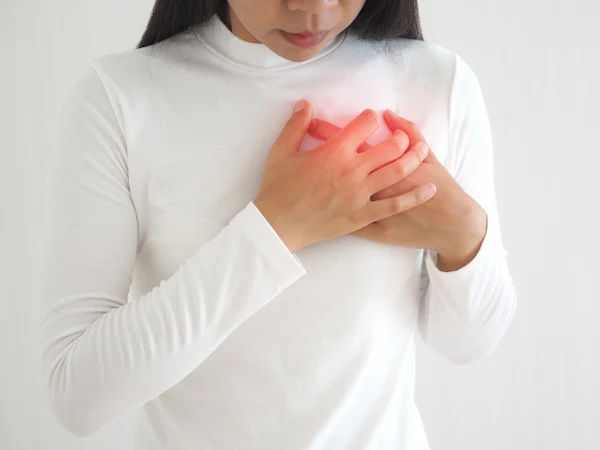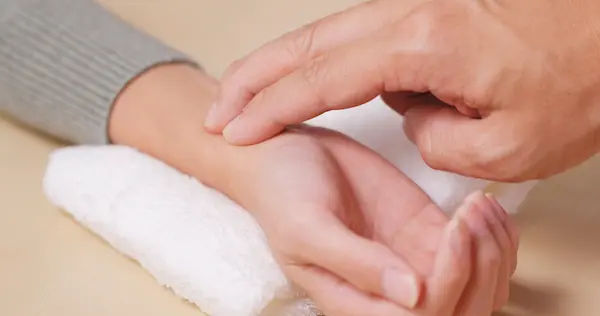- female
- 50 Years
- 22/01/2025
I've been experiencing this really painful, pinching sharp heartache that makes it hard to breathe. It's mostly in the upper part of my left chest and lasts around 2 minutes. It's happened a couple of times even when I was on an empty stomach or just had some warm lemon water. I've had it at night before dinner too. I got some blood tests done, and they said my lymphocytes were high, but sugar was normal. I often feel short of breath while sitting too, and climbing stairs always makes me breathless. This month, its happened like three times. Do you have any ideas about what this could be?
Answered by 1 Apollo Doctors
Could be due to a condition called angina. Angina is chest pain or discomfort caused when your heart muscle doesn't get enough oxygen-rich blood. It may feel like pressure or squeezing in your chest. Given your symptoms and the fact that it has occurred multiple times, it is important to consult a healthcare professional for a proper evaluation and diagnosis. However, based on the information provided, you may benefit from taking medications such as Nitroglycerin sublingual tablets for immediate relief during episodes of chest pain. The usual dosage is 0.3 to 0.6 mg sublingually or chewed at the first sign of chest pain. Additionally, you may also be prescribed medications like Aspirin to prevent blood clot formation and reduce the risk of heart attack. The usual dosage is 75-325 mg once daily. It is important to follow up with a healthcare provider for further evaluation and management of your symptoms.
Dr. Kareemulla Suggests...
Consult a Cardiologist
Answered 04/07/2025
0
0

More Cardiology Health Queries
View allI sometimes get this pinching sensation in my chest and it's not on one particular side. I'm 28, keep myself pretty fit, and play football regularly. Should I be worried about this, or could it just be something else?
ecg and cardiac markers are advised..
Answered by 1 Apollo Doctors
I'm a bit concerned about getting the COVID vaccine because I had angioplasty about a decade ago and have been taking ecospirin tablets since then. I've heard that the vaccine might be risky for people with a history of blood clots. Could you please shed some light on whether it's safe for someone like me?
It is generally safe for patients who have had angioplasty and are taking ecospirin (aspirin) to receive the Covid vaccine. The benefits of getting vaccinated against Covid-19 outweigh the risks, especially in individuals with a history of heart disease. However, it is important to consult with your healthcare provider before getting vaccinated to ensure it is safe for your specific medical condition.
Answered by 1 Apollo Doctors
I've been having pain in the middle of my chest around the breastbone or sternum for a few weeks now. It comes and goes but seems to be getting more painful. Should I be worried about this, and what could be causing it?
nothing happen it is normal
Answered by 1 Apollo Doctors
Disclaimer: Answers on Apollo 247 are not intended to replace your doctor advice. Always seek help of a professional doctor in case of an medical emergency or ailment.



.webp)

